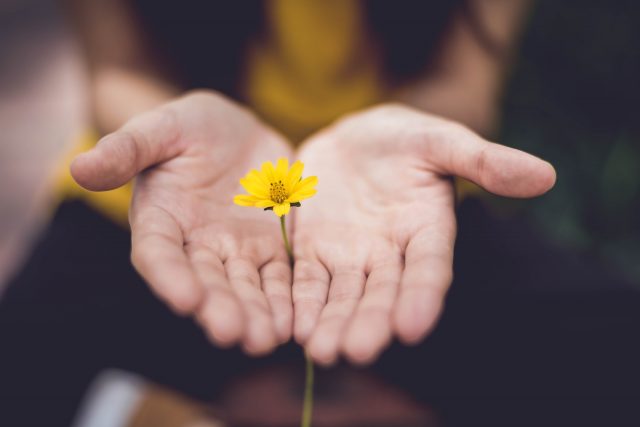Embracing Fear and Vulnerability as Opportunities of a Lifetime
By: Lisa Card Strong, Ph.D. | February 12, 2021

We live in extraordinarily strange times. Thriving does not come to mind by merely surviving. Restructuring does that better. I’ve noticed increased stress levels and more strain on most of us as the pandemic wears on nearly a year now. Boredom exists, although I detect fear more frequently.
Fear can grip the important questions of our time…
- Will I get a vaccine?
- Will someone make me get a vaccine?
- How long will this pandemic last?
- Will I lose my job?
- Will I get COVID-19 if I go into stores?
- Will my family be okay?
- When will my kids go to school in person?
…all of which lead to a concluding statement of desperation…
- I can’t take this any longer.
Managing Fear
Something important happens in the brain when fear takes hold. When the fear network activates in the brain, the amygdala activates also to initiate the fight-flight-freeze response, an automatic survival mechanism in humans. The fight-flight-freeze response activates our survival instincts, which go to work when immediate life-or-death situations occur such as assault, combat, natural disasters, severe car accidents, or abuse. We cannot, however, live in high levels of fear activation for weeks or months without significant costs to our physical and mental health. Why? Because such fear levels exhaust and deplete us.
The first step to recovery includes calming and soothing oneself. We then employ our thinking capabilities in combination with some level of acceptance, thereby allowing the rational part of our brains to understand our emotions so that we can solve problems and think clearly.
Recognizing and acknowledging anxiety has positive impacts on fear and nervousness. Once acknowledged, fear allows us to make choices based on information and enlarge our perspective of the world.
Acting in spite of our fears can provide us with much needed refuge. Such refuges include rediscovering the outdoors, daydreaming, writing poems or reading books, completing long-overdue household projects, relocating, changing jobs or reconsidering our lifestyles. This pandemic may also provide an opportunity to slow down, to consider how we really want to live, including where and with whom we want to live our lives. This new reality, in all possibility, helps us know ourselves better, especially when we allow ourselves to feel the vulnerability that fear creates.
Accepting Vulnerability
If you can embrace vulnerability, you may find that answers about how to move forward in your life may manifest themselves quite clearly. Accepting vulnerability typically decreases anxiety and fear. When you choose to embrace vulnerability, you have chosen to learn. When you choose to succumb to vulnerability in the case of losing a loved one, you learn how to grieve. Flexibility and openness constitute a path that moves forward from stagnation and desperation.
The pandemic will not forever show such significant impact on our lives as it seems to do now. The pandemic of 1918 passed, allowing the ‘Roaring 20s’ to follow as a time of prosperity and celebration. Seasons come and seasons go. No specific expiration date exists for any of us. Learning to live and embrace each day, to live fully makes the meaningful message of our times.
If you need to grieve, then grieve rather than push the feelings away.
If you need to make a change in your life, begin plotting a plan now.
If you need to improve or end an unhealthy relationship, make the shift happen.
Embrace the time we have on earth, for it is the opportunity of a lifetime.
Photo by Lina Trochez on Unsplash



